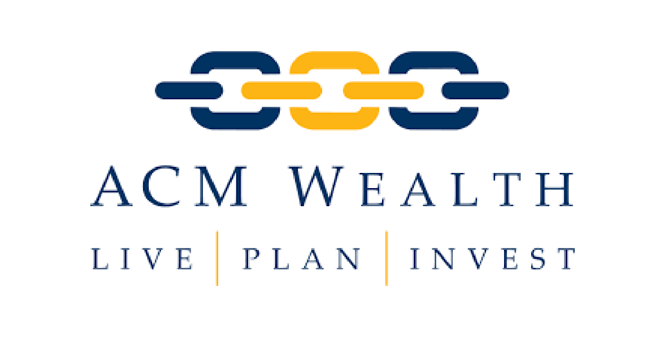Health, Elder Care, Estate Planning, Long-term care
Planning for Long-Term Care: Understanding Your Options

As we age, planning for long-term care becomes an essential part of comprehensive estate planning. Ensuring that you or your loved ones receive the appropriate care and support in later years requires thoughtful consideration of various options. From nursing homes to in-home care, understanding the different types of long-term care available and the associated financial considerations can help you make informed decisions that align with your needs and goals.
Nursing Homes: Comprehensive Care for Seniors
Nursing homes, also known as skilled nursing facilities, provide comprehensive care for seniors who require constant medical supervision and assistance with daily activities. These facilities offer 24-hour nursing care, rehabilitation services, and a range of medical treatments for individuals with chronic illnesses or severe disabilities.
Nursing homes are suitable for individuals who need extensive medical care and cannot be adequately cared for at home. The cost of nursing home care can be significant, making it essential to plan ahead. Medicare provides limited coverage for short-term stays in skilled nursing facilities, but long-term care is typically funded through personal savings, long-term care insurance, or Medicaid for those who qualify.
Assisted Living Facilities: A Balance of Independence and Support
Assisted living facilities offer a middle ground between independent living and nursing home care. These facilities provide seniors with the support they need for daily activities such as bathing, dressing, and medication management while allowing them to maintain a level of independence. Residents typically live in private or semi-private apartments and have access to communal areas for dining and social activities.
Assisted living is ideal for individuals who do not require constant medical supervision but need assistance with daily tasks. The cost of assisted living varies widely depending on the location and level of care provided. Unlike nursing homes, Medicare does not cover the cost of assisted living, so residents often rely on personal savings, long-term care insurance, or family support to cover expenses.
In-Home Care: Personalized Care in the Comfort of Home
In-home care services allow seniors to receive personalized care in the comfort of their own homes. This option is ideal for individuals who prefer to stay in familiar surroundings and require assistance with daily activities, medical care, or both. In-home care can range from a few hours of assistance each day to round-the-clock care, depending on the individual's needs.
The services provided by in-home care professionals can include help with personal hygiene, meal preparation, medication management, physical therapy, and companionship. Home health aides and visiting nurses are often employed to provide these services. The cost of in-home care varies based on the level of care required and the geographic location. Many families use a combination of personal savings, long-term care insurance, and Medicaid benefits to fund in-home care services.
Financial Considerations: Planning Ahead for Long-Term Care Costs
Planning for long-term care requires careful financial planning to ensure that you have the resources to cover the costs of care without depleting your savings. There are several financial tools and strategies that can help you prepare for these expenses:
Long-Term Care Insurance: Purchasing a long-term care insurance policy can help cover the costs of nursing home care, assisted living, and in-home care. These policies typically provide benefits based on daily or monthly reimbursement rates and may cover a portion of the costs for a specified period. It's important to purchase long-term care insurance while you are still relatively young and healthy to secure lower premiums and broader coverage options.
Medicaid Planning: For individuals with limited financial resources, Medicaid can provide coverage for long-term care services. However, qualifying for Medicaid requires careful planning, as there are strict income and asset limits. Medicaid planning involves structuring your assets and income in a way that meets eligibility requirements while preserving some of your wealth for your heirs. Consulting with an experienced estate planning attorney can help you navigate the complexities of Medicaid planning.
Personal Savings and Investments: Using personal savings and investments to fund long-term care is a common approach. This may involve liquidating assets, such as real estate or investments, to cover care costs. It's essential to have a financial plan in place to ensure that you have sufficient funds to cover your long-term care needs without compromising your financial security.
Trusts and Estate Planning: Establishing trusts can be an effective way to manage and protect your assets while ensuring that your long-term care needs are met. Irrevocable trusts, such as Medicaid Asset Protection Trusts (MAPTs), can help shield assets from Medicaid eligibility calculations. Additionally, setting up a long-term care trust can provide a dedicated source of funds for your care.
Ensuring Comprehensive Long-Term Care Planning
Navigating the complexities of long-term care planning is essential for securing your financial future and ensuring that you or your loved ones receive the best possible care. By exploring the various options available—nursing homes, assisted living facilities, and in-home care—you can make informed decisions that align with your needs and preferences. Financial planning tools such as long-term care insurance, Medicaid planning, and trusts play a crucial role in preparing for these expenses.
At Donohue, O'Connell & Riley, we specialize in comprehensive estate and long-term care planning. Our experienced attorneys can guide you through the process, helping you develop a personalized plan that addresses your unique needs and goals. Contact us today to schedule a consultation and take the first step toward securing your future and the care you deserve.
November 20, 2024
Elder Care, estate administration, Planning Pitfalls
Live Podcast - Avoiding Estate Planning Pitfalls

This week the Live, Plan, Invest podcast hosted by ACM Wealth welcomed Joe Donohue, Managing Member of Donohue, O'Connell & Riley. Joe specializes in Estate & Gift Tax Planning along with many other focuses revolving around Estate Planning. Kevin and Joe discuss the six pitfalls people fall into when conducting Estate Planning, how to avoid them and how best to set up your Estate, including some resources that you need to use. All that and more!
Listen live here: https://acmwealth.com/videos-podcasts/live-plan-invest-podcast-episode-6-avoiding-estate-planning-pitfalls-ft-estate-planning-attorney-joe-donohue/
December 5, 2023
A Guide to Aging in Place or Welcoming a Senior Family Member into Your Home

Independent Seniors Face Difficult Choices
Seniors continue to live longer, requiring thoughtful planning for where they will reside in their golden years as their health and mobility decline. With many seniors remaining in private homes without live-in help, it comes as no surprise that falling is a leading cause of injury. If the senior chooses to remain in their home, several mechanisms are available to age gracefully by maintaining safety and providing for greater independence.
Sometimes, families are apprehensive about their elderly family member living alone and intend on inviting them into their home. In this context, different challenges will present themselves depending on family dynamics and the level of care required. Significant adaptations will be necessary, and family concerns will need to be addressed to reduce the likelihood of conflict. Nevertheless, with careful consideration, it can be an opportunity for the senior to experience love, support, and companionship during the remaining final years of their life.
Trusted guidance on these issues increases the senior’s longevity and ensures the family can happily coexist. “Every family approaches caring for a senior differently,” explains founding attorney Joseph Donohue, “I advise my clients of problems likely to arise and factors to consider given various living situations to prevent issues and facilitate a smooth transition.”
Tech Savvy Seniors
The first way to support a senior’s autonomy is through the use of technology. Certain devices make aging in place easier for the senior and provide convenience to the family to check in on them without being overly intrusive or having to travel long distances for frequent visits. It also helps that seniors have grown impressively tech-savvy. During the pandemic, grandparents learned to navigate Zoom and FaceTime to connect with family members while avoiding the risk of illness. Seniors are also active on social media and using it to reconnect with old friends and distant relatives.
As mobility decreases, technology makes tasks manageable. Virtually any product can be delivered using online services or subscriptions through retailers like Amazon. Non-perishable household items like laundry detergent or trash bags can now be mailed, eliminating the need to run frequent errands. Virtual assistants like Alexa, Google Home, or Siri are voice-activated, so a senior can make a grocery list or control the television from the comfort of their recliner, or contact emergency services if they have fallen and can’t get up!
The National Council on Aging found that 75% of seniors have at least one chronic medical condition. To ease safety or medical concerns, families can install security cameras to gain peace of mind without being intrusive in the senior’s life. Footage can be viewed on demand to check in or confirm the dog was fed. Doorbells also have built-in cameras for security to protect a senior from unwelcome solicitation by questionable characters.
To further hedge against a medical crisis when the senior is alone, life-alert pendants can be worn to alert family members to trouble, and an Apple Watch can track health data between doctor visits. There are also cell phone apps to create pill reminders, and automated machines to distribute the correct dosage of medication to guarantee accuracy.
Who’s in your Senior Support Circle?
The concept of a “Support Circle” incorporates essential people into a senior’s life by grouping them into six categories: financial, tax, legal, housing, healthcare, and social. “A senior leans on each group in different ways making it important for people in one group to know people in the other groups,” explains Donohue, “it creates open lines of communication before a crisis occurs.” For example, if a father’s bills are paid by his daughter, she should be acquainted with his banker, investment advisor, and accountant to efficiently manage finances and tax filing obligations. The same concept applies to friends and neighbors who can check in on the senior or plan lunches with them to better integrate them into community life.
Preventing Family Disruption
There may come a time when a senior cannot safely live on their own or no longer wants to struggle, making moving in with younger family members the only option to avoid a nursing home. It is a difficult decision that works better for some families than others. Transparent communication about expectations, responsibilities, and boundaries helps facilitate the process.
Assimilation into a new household depends on the senior’s adaptability, dependency, and the host family’s level of acceptance. Both sides should discuss sticking points for a clear understanding of expectations, including the division of chores and bills. Keep in mind, the senior may be able to cook dinner while lacking the strength to take out the trash or push a lawn mower. Sharing responsibilities in an accommodating way can help avoid arguments and injuries.
Another point of friction is planning family versus private meals. Married empty nesters may value some private meals without the senior’s company, or the senior may prefer to cook something for themselves and eat alone. Also, consider that seniors may like to have their early bird special and may not want to eat later with the family.
Unfortunately, the senior and some family members may just not get along. If there is known animosity between individuals, living together will only exacerbate problems. “There should be a preexisting, loving relationship between everyone involved before contemplating inviting the senior into an unwelcoming environment,” advises Donohue, “it could be detrimental to your family, marriage, or sanity.”
Senior-Friendly Home Modifications
Aging in place or joining a new home may necessitate design modifications to meet the senior’s needs and address functional limitations. Modifications should occur when the senior is healthy to limit inconvenience or disruption. You do not want to return from the hospital with a wheelchair only to realize it cannot fit through the bathroom doorframe. Additionally, installation of a roll-in shower and handheld showerhead can mean the difference between bathing independently with privacy, and needing help.
There should always be conversations about the cost of required home maintenance and renovations when a senior joins the home. This includes who pays for landscaping, property taxes, or repairs costs resulting from the senior’s stay. If the senior is unable to afford repairs, other family members may be asked to help bear the expense.
Be aware that renovations to accommodate the senior may negatively impact a home’s resale value. Items installed should be removable - such as stair lifts, ramps, grab bars, and accessible showers. Other modifications that become fixtures are not recommended. Examples are accessible tubs that are not attractive to subsequent buyers or elevators with a high price that is rarely recouped. Similarly, converting a garage or basement, or making substantial structural changes rarely yield a positive return on investment.
Conclusion
Aging in place, or welcoming a senior into your home, is a multifaceted endeavor requiring well-thought-out planning. The goal is to provide the senior with a supportive, dignified, and enriching environment while not compromising the family’s well-being. There will undoubtedly be challenges, but with a little empathy and creativity, a multi-generational family can coexist in harmony for years to come.
October 27, 2023
Tax Savings, Will, Elder Care, Estate taxes, executor help
Five Common Mistakes Made by Executors & How to Avoid Them

Administering a trust or an estate is an important responsibility. In addition to keeping track of all relevant assets, income and expenses, executors must attend to the interests of the beneficiaries while often undergoing the grieving process themselves. Here are five common mistakes to avoid:
1. Failure to Consider Carrying Costs
Carrying costs can quickly accumulate and eat away at the value of an estate, so when it comes to the estate settlement process, time is money. The executor should ensure that ongoing costs such as property taxes, insurance and lawn care or snow removal are met, while acting decisively to liquidate assets that cost the estate money.
Other costs may include making necessary repairs and reviewing insurance coverage for a vacant home. It is recommended that the executor organizes the sale or transfer of the home as soon as is practicable.
2. Failure to Consider Opportunity Costs
Just as the value of a decedent’s residence is subject to carrying costs, there are opportunity costs to leaving assets in an estate as well. Inflation will inevitably diminish the value of assets held in an estate. Also, some assets may be subject to unexpected losses and could be put to better use in other investments or be used to pay down debt and thereby reduce interest payments and fees. Over time, these opportunity costs can reduce a person’s legacy by 10 percent per year or more. A prudent executor will work quickly to gather and distribute all assets from the estate as soon as is legally permissible, giving the beneficiaries the opportunity to use or grow their inheritance.
3. Sentimentality and Slow Decision Making
As the executor of a loved one’s estate you will need to process your own grief while also making practical decisions. It may be helpful to think of your role as an executor as a professional responsibility, separate from your obligation to the decedent as a family member or friend. This will give you the distance to make business-like decisions for the estate, and not sink into sentimentality. The decedent trusted you to be organized, diligent and professional in carrying out their final wishes in a prudent and expeditious fashion. If the decedent was a loved one, it may be beneficial – even healing – for you and other beneficiaries to spend some time examining their possessions and revisiting memories. Beware, though, of getting lost in minutiae as it can quickly increase your costs while not significantly increasing your inheritance.
4. Not Hiring Professional Help
Many individuals adopt a “do it yourself” approach to administering an estate instead of hiring professionals, such as accountants, appraisers, lawyers and contractors. What many people don’t realize is that by “DIY-ing” it, the savings to any one beneficiary is low, but the liability for the executor can be extremely high. If you or another non-professional unknowingly violate building codes, miss deadlines, or simply fail to acquire necessary licenses or permits, beneficiaries may seek to impose liability. In addition, a good accountant and attorney are well worth their fees for what they may save you in taxes and time.
5. Ignoring the Calendar
Be sure to keep track of tax filing dates, real estate cycles, and seasonal costs. For most clients, filing estate and trust income tax returns on a calendar year (vs. fiscal year) basis makes the most sense. As a result, you will want to keep an eye on the calendar so that you can reduce the number of years required for filing returns. Imagine a client who passed away late in the year: most likely, it will be impossible to close out his or her estate in a few months, and therefore tax returns may be required for two years at least.
Real estate cycles are also important to keep in mind regarding the sale of the decedent’s home, which is often their largest asset. Allow appropriate time to clear out a residence, make needed repairs, and hire professional cleaners to present the property in a good light, but do not embark on a program of major capital improvements. Realtors say that March, April and May are the best months to list a home, while November and December are the worst. In addition to putting a home on the market when it has the best chance of selling for a high price, it is important to think about allowing yourself enough time between the sale and the applicable filing deadlines to file all necessary paperwork and tax returns.
Summing Up
As you can see, an executor is trusted with dozens of projects, many of which interrelate. Getting stuck at any one stage can lead to delays and disruptions which over time compound and can create enormous opportunity costs which in turn can result in liability to the executor or trustee. Navigating the winding path between decisive action and careful consideration can prove tricky without the guidance of a seasoned professional. At Donohue, O’Connell & Riley, our attorneys have “seen this movie before” and even though this might be your first time serving as an executor or trustee, it is definitely not ours. Our attorneys have collectively spent over 100 years administering trusts and estates and can guide you along the long road to the conclusion of the estate administration process, while providing an independent perspective at one degree of removal from the difficult emotional circumstances that you will be handling.
January 7, 2022

